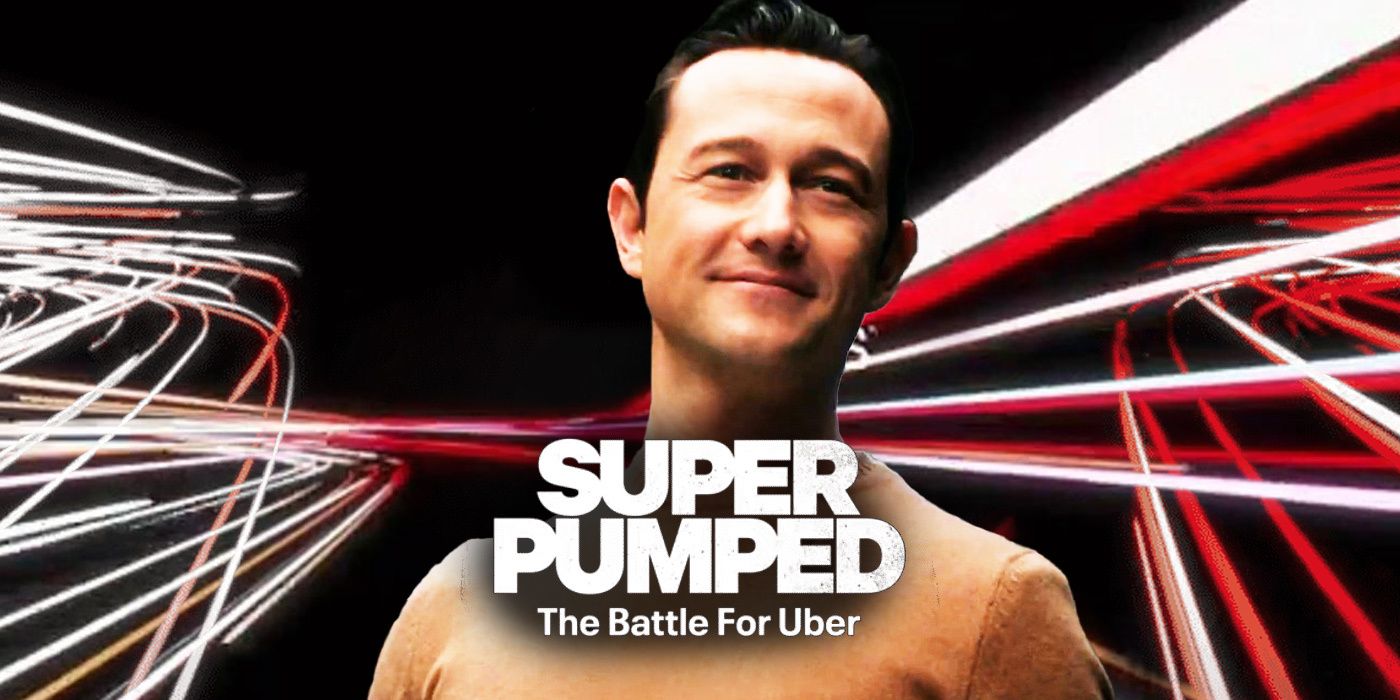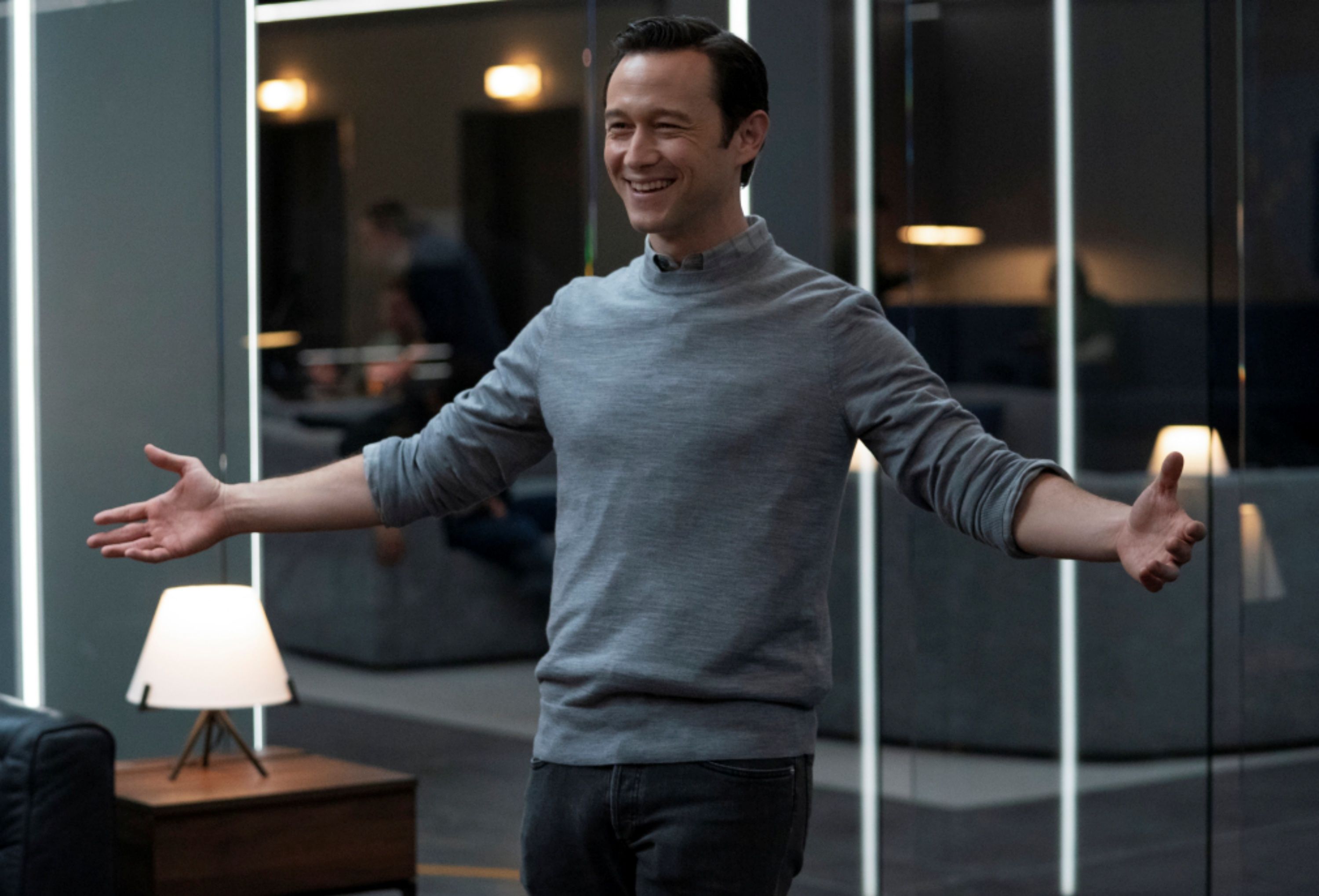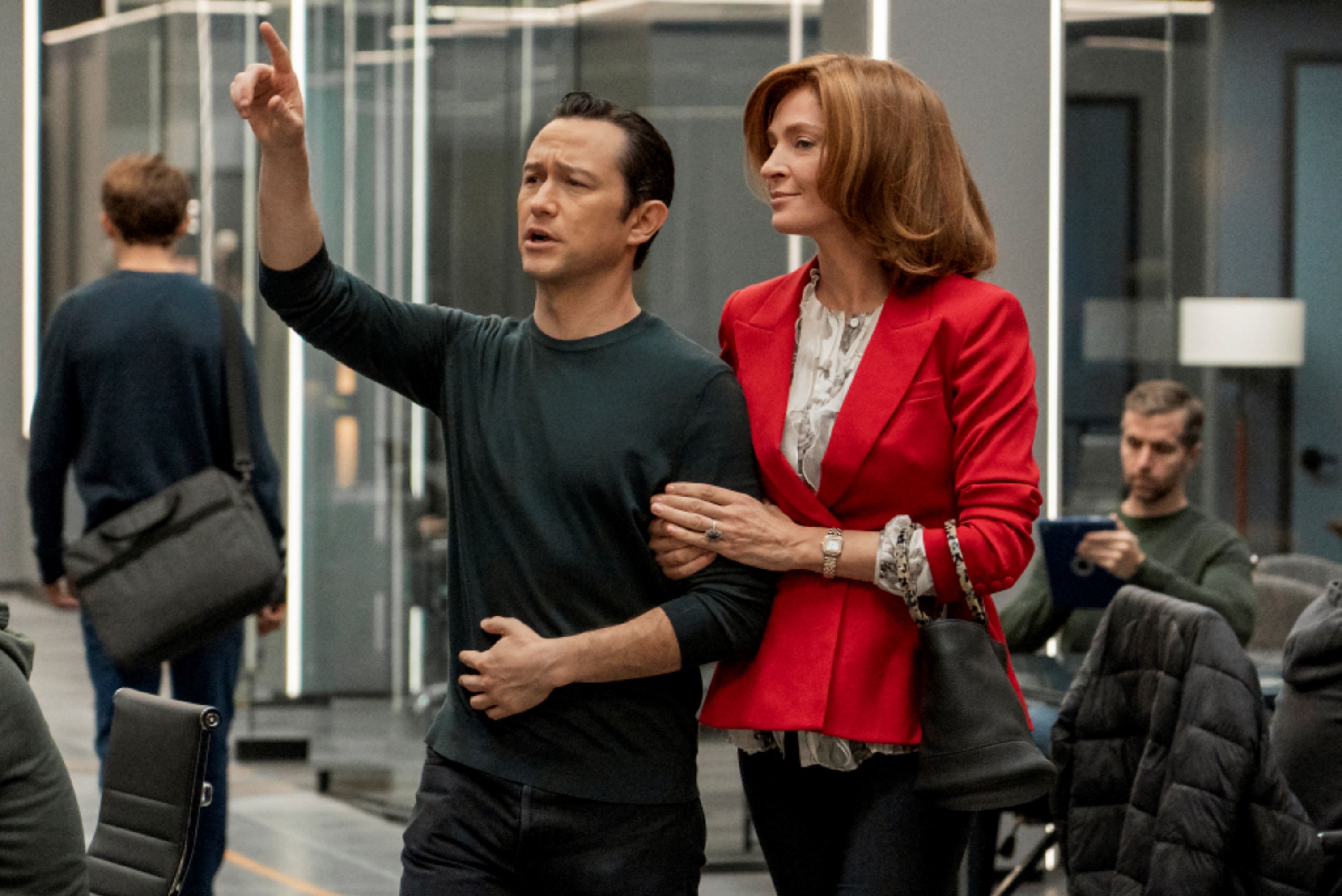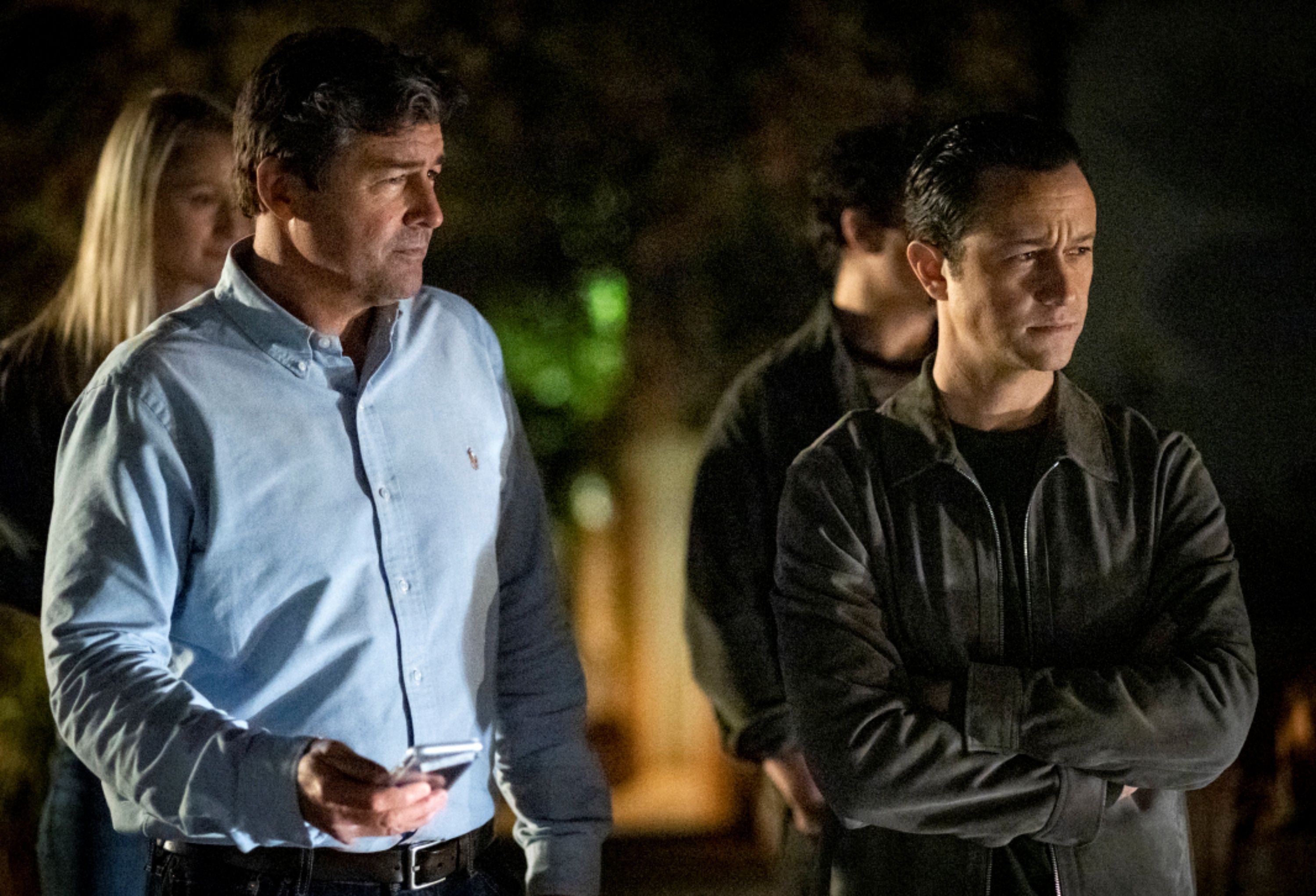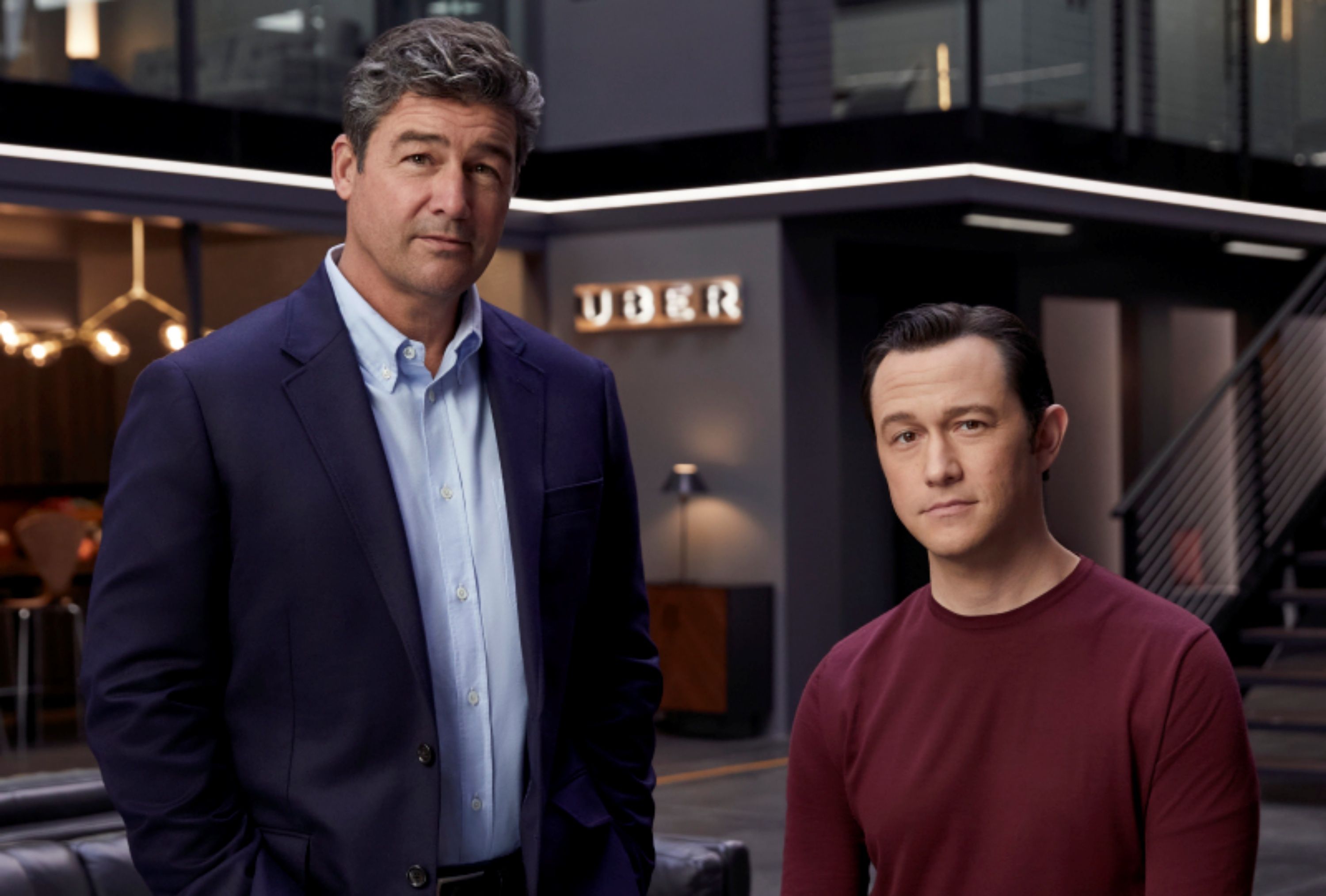From creators Brian Koppelman and David Levien (Billions) and based on a true story, the Showtime series Super Pumped: The Battle for Uber follows Travis Kalanick (Joseph Gordon-Levitt), who started one of Silicon Valley’s most successful companies in Uber, but who was also ultimately kicked out of his own boardroom. The upstart transportation company rocked the business world as Travis’ win-at-all-costs approach fueled its meteoric rise into a multi-billion dollar machine while also being responsible for its downfall.
During this 1-on-1 interview with Collider, Gordon-Levitt talked about why this was such a dream project, what most helped him figure Travis out, how Travis defines the human condition, the challenge of playing someone who never stopped moving, the interesting dynamic between Travis and Arianna Huffington (Uma Thurman), having Elisabeth Shue play his mom, including so much of Pearl Jam’s music in the series, and what he hopes audiences take from watching this story.
Collider: To start with a fun question, when are you going to appear in a Knives Out movie as more than just a voice cameo? Is that something that will ever see happen?
JOSEPH GORDON-LEVITT: I really want it to. It’s true. Rian [Johnson] and his team were shooting the next one while I was doing Super Pumped, actually. It was a terrible decision I had to make. I hope so, one day. I love Rian.
What does your relationship with Rian Johnson, on a professional and personal level, mean to you? You don’t get to have such a long-running relationship too often, as an actor with a filmmaker, so what’s it like to have someone like him to collaborate with?
GORDON-LEVITT: He’s like family. We’ve known each other now for so long. When we first met, I was 22. I’m about to be 41. He’s taught me so much and always been so supportive. That’s how he generally is. He’s really generous with his time and knowhow. He has such humility. He’s just open to sharing what he knows with the people around him, and I’ve been a huge beneficiary of that.
I very much appreciated all the Pearl Jam music that we get to hear in Super Pumped. Do you have any idea how that came about, as far as their music being so present throughout the season?
GORDON-LEVITT: It was in the scripts, actually. I remember remarking on it then. I am actually an avid Pearl Jam fan, and I was like, “This is a weird alignment, but I think I get it. I think this is a really great idea, and it’s something I never would’ve thought of.” But yeah, it really works. I’ve gotta hand it to Brian Koppelman and David Levien, for that really inspired choice.
I actually loved how the songs really reflected what was going on in each moment that they’re used in. I just thought it was really genius and I loved it.
GORDON-LEVITT: Yeah, it reminds me a little bit of how Ronald Reagan used “Keep on Rockin’ in the Free World,” the Neil Young song, in his campaign commercials, and Neil Young had to say, “No, you cannot do that.” It strikes me as the same thing. Travis would imagine himself as embodying that rebel spirit that you hear in Pearl Jam, just as Ronald Reagan might have imagined himself embodying some kind of spirit that he heard in “Keep on Rockin’ in the Free World.” I’ve gotta hand it to Pearl Jam for getting the satire that Brian and David were going for and letting us use their music. They don’t let everybody use their music, so I was really stoked that they got the joke.
When the opportunity to have played this guy came your way, was it an immediate yes, or was it something you had to dig into a bit first? This is not a warm, loving guy that you just want to embrace playing, necessarily.
GORDON-LEVITT: This is one of those ones that you hope for and wait for. These don’t come around all the time. These don’t just fall in your lap. Within the first few pages of reading this script, I was like, “Oh, this is gonna be so fun.” They took this guy who, on the one hand, is making highly questionable decisions and is guilty of highly questionable ethical behavior, and yet, at the same time, is talking in these rat-a-tat-tat fireworks that are just so much fun to play. It makes for a delicious feast, as an actor, and hopefully, for audiences as well.
Travis Kalanick is an interesting guy because he’s kind of an asshole and even seems to know that he’s an asshole, embraces it and surrounds himself with other assholes.
GORDON-LEVITT: That interview question that he asks at the beginning, that’s real. All of those things are real because they’re from the book Super Pumped, which is written by a New York Times journalist and adherent to the journalistic integrity of the Times. It’s all sourced from a direct source and confirmed from a secondary source. So yeah, he really would ask that.
When you’re playing somebody like that, do you have to find a way to like him, or is that not something you concern yourself with?
GORDON-LEVITT: I think there’s a lot to like about him, actually. I think there’s something basic and primal in all of us that wants to just take what we want, win at all costs, and fuck everybody else. We all have that inside ourselves. We don’t indulge it. At least, we don’t indulge it all the time. And Travis is an example of someone who just leaned as hard as he could into that beast inside. I think that’s really attractive, to do that. It felt cathartic and exciting, as an actor, to get to have an arena to indulge that primal side of myself. I think audiences will get that same thrill. So, I actually think there is something quite likable about him, in a weird way, even though your higher, logical self can understand that it’s a real problem. He’s negatively impacting all these people, and that’s not okay. There you have the human condition. We have our basic primal, animal self and we have our higher, cerebral cortex self, and Travis is a fascinating mix.
I certainly find him fascinating. I don’t know if I’d want him for a friend, but I would definitely want to observe him.
GORDON-LEVITT: Exactly. That’s why it makes for such good TV.
Where did you start with him, when it came to understanding him? Was it the book? Did you dig into other things, along with that? Was that all pretty well laid out in the scripts? What most helped you?
GORDON-LEVITT: Certainly, the book was the starting point. What I really wanted to do was talk to people that were close with him, and not just go through what you could read about him in the press or what you could see of him giving interviews. I wanted to try to get past the public awareness of him and hear directly from people who were there with him. So, I went and talked to a whole bunch of people like that and I got a much richer sense of him than I would have otherwise. A lot of what I found was that people actually did have a lot of positive feelings towards him. People did find him really quite winning and inspiring and likable and fun to be around, even though he was intense and was clearly making some questionable decisions. That complexity, to me, is what makes for a great character. No one is as simple as a good guy or a bad guy. Humans are messy.
Did you meet him at all? Was that something you even wanted to do?
GORDON-LEVITT: I have not been able to do that. I didn’t have the opportunity. That’s why I got as close as I could, by talking to people who were close with him.
Were there physical things, mannerisms, or things you wanted to do with your voice or your speech pattern when it came to portraying him?
GORDON-LEVITT: As far as his speech, often when I’m playing a character, I love paying attention to where they’re from and how they talk there. He’s from where I’m from. We’re both from the same suburb of Los Angeles. When I listen to him speak, he speaks like me and my brother, or close enough, so I actually didn’t do anything there. One thing that I did wanna work in, that was a filmmaking challenge every day, was that everybody I talked to talked about how much he paced. He just never stopped moving. I have some of that in me. When I’m on the phone or something, I always pace around. If I’m writing, I never sit and write. I’m always just pacing around, and then I’ll run back to the keyboard and write something. Travis has that in extremity.
When we were blocking out the scenes, normally what you do is you find a position and they put a piece of tape down at your feet, so they can set up the camera so they can shoot you there, but every day, I was like, “I’m gonna pace, walking back and forth.” The whole crew had to figure it out. We developed a new grammar. They didn’t end up just putting one piece of tape down. They marked the boundaries where I’d be pacing, and the camera crew would have to figure out how they were gonna shoot me because I paced a lot. From everything I’ve heard, that’s real. This is a guy who literally built a track around the perimeter of his office. That’s real. That’s in the show, but that’s real, so that he could pace around it.
There’s such an interesting dynamic between Travis and Arianna Huffington. She seems like-minded in business, but they also seem like two people that would not be in each other’s orbit, if they didn’t think they could get something from each other. How did you view their relationship and what was it like to see what Uma Thurman brought to that?
GORDON-LEVITT: Uma Thurman has been someone I’ve adored ever since Pulp Fiction. She’s such an iconic and magnetic and graceful artist. Her level of artistry, I’ve just always loved her. And so, this was a true highlight for me, getting to act across from her. I would have these, “Holy shit!,” euphoric moments, all the time, just looking into her eyes and doing dialogue. She nailed Arianna Huffington. Her character work is just a master class in acting. I would watch a whole show of her. She’s so fun to watch as Arianna. I love your question about their dynamic because it’s funny, they’re both Machiavellian, but Arianna is the catch more bees with honey type while Travis is the bull in the China shop. As different as they seem, they’re actually quite similar creatures.
What was it like to have Elisabeth Shue play your mother?
GORDON-LEVITT: Elisabeth Shue is actually a dear friend. She was in a movie that I was in, called Mysterious Skin, nearly 20 years ago now. That was a really important movie for me, as an artist and in my career, and we stayed in touch. She’s been a dear friend and mentor, and I’ve learned so much from her. She didn’t tell me she was doing this show. She surprised me. She showed up the first day, and I laughed out loud, in front of everybody, in sheer joy that she was there. I love that she plays my mom. She brings a heart and soul that’s really important. Also, as far as I understand, Travis was quite close with his mother.
What do you hope and want audiences to take from this story? Are there things you want them to learn about Travis, or are there things you want people to know about his story, in general? What do you hope people get from this?
GORDON-LEVITT: Brian and David, the creators of the show, have done such a great job of making a work of entertainment where you can just sit down and enjoy the fireworks, but that also asks some really important questions about how our world works. For me, I would encourage an audience to not just indict Travis Kalanick, as an individual person, but to instead look at the larger system in place that he’s a product of. The game that entrepreneurs are made to play is that profits trump all. You have to make money and you have to increase value for your shareholders. That’s all. That’s your responsibility. Milton Friedman is the economist that defines, unfortunately, a lot of how Western capitalism works right now, and it’s breaking the world. That should not be the game that entrepreneurs have to play.
Now, Travis played it better than almost anybody, ever, in history, but it’s not a game that he invented. That’s the game that he has to play. And it’s not just Uber. It’s all these companies in Silicon Valley that we’re asking about. How do we fix Facebook? Do we break it up? You’re not gonna fix Facebook until Facebook has incentives beyond money and beyond profits. Until our economy actually says, “Hey, you can’t just make money. You also have to look out for the good of the world and for our future.” Until that’s in place, Facebook is gonna keep being Facebook, and everything else is band-aids.
And by the way, it’s not just Silicon Valley. It’s not just Facebook and Uber. It’s Wall Street, it’s Walmart, it’s the oil industry, it’s everything. It’s how Western capitalism works right now. I’m not against some free market, but there has to be a check on that power. It can’t just be profits. In other words, Milton Friedman is wrong. I’m more of a subscriber to Keynesian economics. I’m trying to sound smart. If there’s a lesson and you ask, what do you want audiences to take, it’s that we can’t live in a world where money is the most important thing.
Super Pumped: The Battle for Uber airs on Sunday nights on Showtime.

